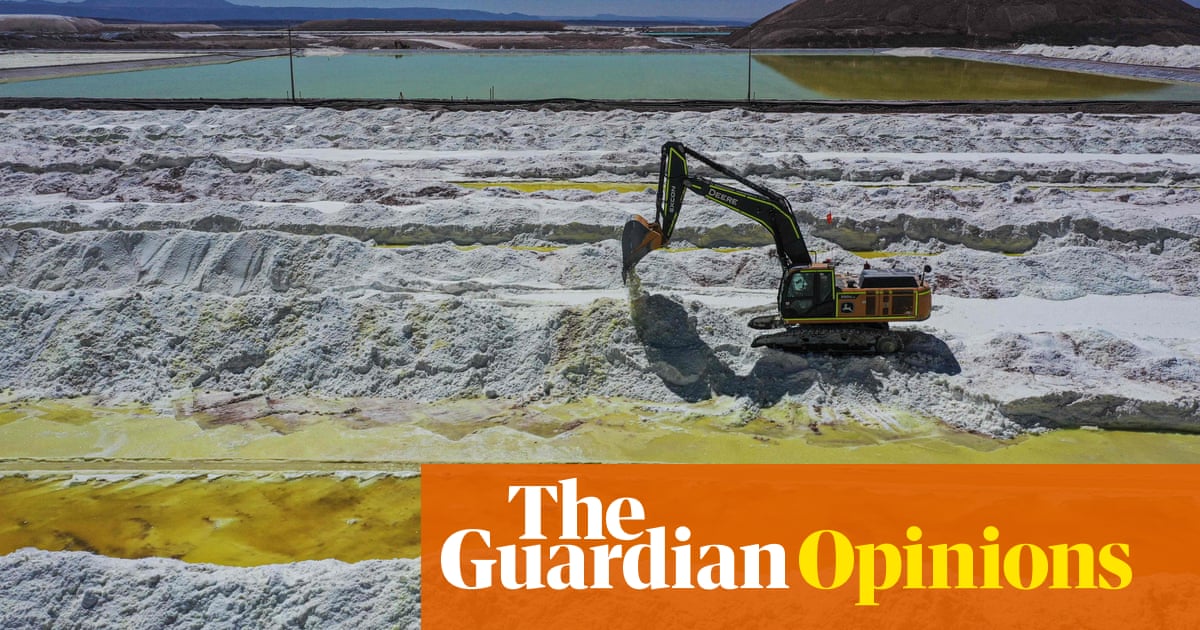Despite its name, the infrastructure used by the “cloud” accounts for more global greenhouse emissions than commercial flights. In 2018, for instance, the 5bn YouTube hits for the viral song Despacito used the same amount of energy it would take to heat 40,000 US homes annually.
Large language models such as ChatGPT are some of the most energy-guzzling technologies of all. Research suggests, for instance, that about 700,000 litres of water could have been used to cool the machines that trained ChatGPT-3 at Microsoft’s data facilities.
Additionally, as these companies aim to reduce their reliance on fossil fuels, they may opt to base their datacentres in regions with cheaper electricity, such as the southern US, potentially exacerbating water consumption issues in drier parts of the world.
Furthermore, while minerals such as lithium and cobalt are most commonly associated with batteries in the motor sector, they are also crucial for the batteries used in datacentres. The extraction process often involves significant water usage and can lead to pollution, undermining water security. The extraction of these minerals are also often linked to human rights violations and poor labour standards. Trying to achieve one climate goal of limiting our dependence on fossil fuels can compromise another goal, of ensuring everyone has a safe and accessible water supply.
Moreover, when significant energy resources are allocated to tech-related endeavours, it can lead to energy shortages for essential needs such as residential power supply. Recent data from the UK shows that the country’s outdated electricity network is holding back affordable housing projects.
In other words, policy needs to be designed not to pick sectors or technologies as “winners”, but to pick the willing by providing support that is conditional on companies moving in the right direction. Making disclosure of environmental practices and impacts a condition for government support could ensure greater transparency and accountability.



What is this even? Batteries for UPS in a datacenter wouldn’t be a patch on even a few days of production of EVs, water isn’t being shipped from “drier parts of the world” to cool datacenters, and even if it were, it’s not gone forever once it’s used to cool server rooms.
Absolutely, AI and crypto are a blight on the energy usage of the world and that needs to be addressed, but things like above just detract from the real problem.
The water is because datacenters have been switching to evaporative cooling to save energy. It does save energy, but at the cost of water. It doesn’t go away forever, but a lot of it does end up raining down on the ocean, and we can’t use it again without desalination and using even more energy.
That may all be true, but the amount of water used by these data centers is miniscule, and it seems odd to focus on it. The article cites Microsoft using 700,000 liters for ChatGPT. In comparison, a single fracking well in the same state might use 350,000,000 liters, and this water is much more contaminated. There are so many other, more substantive, issues with LLMs, why even bring water use up?
Edit: If evaporative cooling uses less energy it might even be reducing total industrial water use, considering just how much water is used in the energy industry.
Where do you think rain comes from? Why do hurricanes form over the ocean?
Dude, please. If things just worked out like that, we wouldn’t have water issues piling up with the rest of our climate catastrophe.
No no they’ve got a point. Everyone knows that the invisible hand of the free market and the invisible hand of the replenishing water table just reach out, shake hands, and agree to work it all out.
Rainforests. Like the Amazon that is being deforested obscenely in some areas